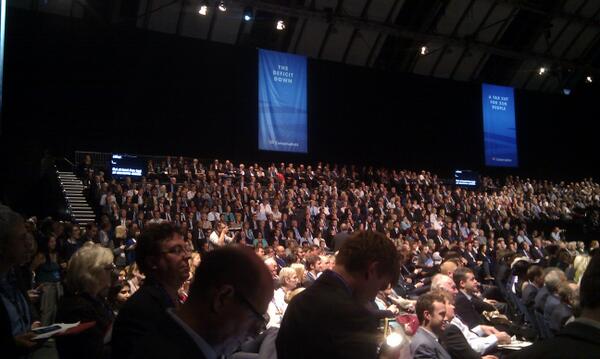Last night we went to watch the film
Lincoln in our local village hall - and, as something of a speech and communications nerd, it was something I had been looking forward to for quite a while.
But, from a few minutes in, I found it increasingly difficult to get two rather negative thoughts out of my mind.
1. Too many words?
One was a memorable line from the film
Amadeus, when Mozart is confronted by the complaint that his latest composition suffered from having had "too many notes." From discussions afterwards, I know that I wasn't the only person in the audience who thought that
Lincoln suffered from having "far too many words".
Among other things, this had the effect, of making it the film too long. For example, when individual members of Congress started to vote on the crucial amendment one by one, I wondered just how many hundreds of these we were going to have to sit through.
2. Too American?
I'll admit that our village hall film shows do have a problem with the sound quality, so it was also a relief to learn afterwards that I hadn't been to only one there who had trouble hearing the dialogue. Leaving that to one side, however, there was something else that was difficult to get out of my mind - that I'd implicitly touched on in a recent presentation on on
how well does English work as a common language.
This was the fact that differences between American and British culture may have ensured that
Lincoln was unlikely to impress British audiences as much it had apparently impressed audiences on the other side of the Atlantic.
Before the film started, another member of the audience had already said to me "I don't know much about American history and I've really only come because I felt I ought to - I might learn something."
Too Ethnocentric for a British audience?
And here lies the rub. We Brits really know very little about the history of the USA, let alone its constitution or how it works.
We do know that they had the audacity to declare their independence from us, that they had a civil war that led to the end of slavery - though not the end of segregation (
HERE) - and that they had opted to have a president rather than a monarchy.
But most of us know very little about the separation of powers between the legislative and executive arms of government, nor about the differences between the individual constituent states of the USA and the federal government - or the machinations between them that this gives rise to.
So for us, some of the basic assumptions at the heart of the film were at best culturally strange and at worst, completely foreign to us.
Vices & virtue as drama?
Apart from the characters of Lincoln and his family, it was never really made clear who everyone else was and we were left guessing who they were and which side they were on, whether in the ongoing debate or the civil war itself. All too often conversations sounded more like a succession of speeches or soliloquies, as when Mrs Lincoln had a row with her husband.
But, however unrealistic, unclear or plain boring the script might have been to British-English ears, the superb acting of
Daniel Day Lewis not only deserved all the acclaim and awards that he received for it but was main thing that made it worth seeing at all,
Now we've had an Anglo-Irish actor making such an excellent job of playing a US president so soon after an American actress (
Meryl Streep) apparently played a British prime minister (
Margaret Thatcher) rather well, we may even be witnessing a promising trend that might actually bring our two cultures a bit closer together.
But that may depend on whether screen-script writers on each side of the Atlantic take note of the famous line that's widely attributed to George Bernard Shaw -
England and America are two countries divided by a common language - but which
he apparently never said...

